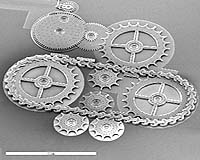|
This is my dynamic, frequently updated homepage. This is a NewsLog, also known as a WebLog or Blog.
Everything is evolving, so don't assume too much.
People to watch:
Adina Levin
Andrius Kulikauskas
Britt Blaser
Catherine Austin Fitts
Chris Corrigan
Clay Shirky
Dan Gillmor
Dave Pollard
David Allen
David Weinberger
Dewayne Mikkelson
Dina Mehta
Doc Searls
Elisabet Sahtouris
Elizabeth Lawley
Euan Semple
Florian Brody
Frank Patrick
Gen Kenai
George Dafermos
George Por
Graham Hancock
Greg Elin
Hazel Henderson
Heiner Benking
Inspector Lohman
Jean Houston
Jerry Michalski
Jim McGee
Jim Moore
John Abbe
John Perry Barlow
John Robb
Joi Ito
Jon Husband
Jon Lebkowsky
Jon Udell
Jonathan Peterson
Judith Meskill
Julian Elvé
Julie Solheim
Kevin Marks
Lawrence Lessig
Leif Smith
Letecia Layson
Lilia Efimova
Lisa Rein
Marc Canter
Mark Oeltjenbruns
Mark Pilgrim
Mark Woods
Martin Dugage
Martin Roell
Mary Forest
Matt Mower
Max Sandor
Michael Fagan
Mike Owens
Mikel Maron
Mitch Kapor
Mitch Ratcliffe
Nathalie dArbeloff
Netron
Noam Chomsky
Paul Hughes
Peter Kaminski
Phil Wolff
Philippe Beaudoin
Ray Ozzie
Raymond Powers
Rebecca Blood
Roger Eaton
Roland Tanglao
Ross Mayfield
Scott Lemon
Sebastian Fiedler
Sebastien Paquet
Skip Lancaster
Spike Hall
Steven Johnson
Stuart Henshall
Thomas Burg
Thomas Madsen-Mygdal
Thomas Nicholls
Timothy Wilken
Todd Suomela
Tom Atlee
Tom Munnecke
Tom Tomorrow
Ton Zijlstra
Lionel Bruel
Loic Le Meur
Nancy White
Mark Frazier
Merlin Silk
Robert Paterson
Colby Stuart
Nova Spivack
Dan Brickley
Ariane Kiss
Vanessa Miemis
Bernd Nurnberger
Sites to watch:
Edge
Junto
Absara
Rhizome
Nanodot
HeadMap
Openworld
FutureHi
Imaginify
Do No Harm
BoingBoing
Smart Mobs
Webcamorama
MetaFilter
NotThisBody
Disinfopedia
YES Magazine
Collective Web
WorldChanging
Disinformation
Escape Velocity
Space Collective
Friendly Favors
Emergent by Design
Independent Media
Global Ideas Bank
Forbidden Science
Greater Democracy
ThoughtsOnThinking
Disclosure Project
Explorers Foundation
Manufacturing Dissent
Collective Intelligence
Action without borders
Free Expression Network
Co-intelligence Institute
Electronic Frontier Foundation
French:
Emmanuelle
Manur
Elanceur
Loeil de Mouche
IokanaaN
Blog d'Or
Le Petit Calepin
GeeBlog
Absara
Guillaume Beuvelot
Ming Chau
Serge Levan
Jean Michel Billaut
C'est pas Mécanique

I live in Toulouse, France where the time now is:
01:06
Unique Readers:

Primarily
Public Domain
Everything I've written here is dedicated to the
Public Domain.

The quotes from other people's writings, and the pictures used might or might not be copyrighted, but are considered fair use. Thus, overall, this weblog could best be described as being:
Primarily Public Domain. |
Syndication:
 ![Validate my RSS feed [Valid RSS]](http://www.newciv.org/pic/valid-rss.png)
|
| Thursday, December 18, 2003 |  |
|
|
|
 What to do with the kids and school has been one of the things worrying me a good deal about being in France. There's the language issue, and the difficulty just figuring out how things work here. I haven't even gathered the guts yet to go and apply for our Carte de Sejour (residency permit) here. And French education is considered hard, of a totally different level than the U.S., so there's a question of how they'll adjust. But, as with many other things, when you actually go and do it, and you incidentally run into the right people, things tend to work out. What to do with the kids and school has been one of the things worrying me a good deal about being in France. There's the language issue, and the difficulty just figuring out how things work here. I haven't even gathered the guts yet to go and apply for our Carte de Sejour (residency permit) here. And French education is considered hard, of a totally different level than the U.S., so there's a question of how they'll adjust. But, as with many other things, when you actually go and do it, and you incidentally run into the right people, things tend to work out.
Little Nadia has since the last month been in École Maternelle. Preschool. When we finally had located a suitable school close by, and managed to show up at the right time, when there wasn't a holiday, there really was no problem signing her up. And they're super-nice to her. A couple of days of crying a bit at first when we left her behind, but she quickly learned to enjoy it. It is in French, obviously, but that doesn't seem to be any kind of problem. Only hard part is us bringing her and picking her up. They have a two hour lunch break in the middle of the day, and unless both her parents were away at work, which we obviously aren't, we'll have to pick her up and bring her back. So, we're talking 4 bicycle trips a day, the 1.5km to the school. Good exercise, and it isn't raining all that often.
As to Zachery, well, he's 17 and the initial plan was that he would finish his U.S. highschool remotely through a home schooling arrangement where he would e-mail homework and otherwise study on his own. Which hasn't been going overly well. So we decided to explore integrating him into the French system now rather than later. Which is certainly not the perfect time to jump into a totally different system, but it might be the best to struggle through it. We spoke first with the British section of the International Lycée de Toulouse, which is all in English and follows the British school system. They didn't think it was a good idea, and that if he at all spoke any French, it would be better with a regular French lycée (highschool). So, we picked the closest one, just down the street, Lycée des Arènes, a big new modern building by the Metro station. And when we went there yesterday, and I was standing trying to explain our situation to the receptionist, who wasn't overly cooperative, it just turned out that next to us a lady overheard our conversation and decided to assist us. And she was nothing less than the Inspector General of English education for all of France, who incidentally was in town. And, first of all she of course spoke perfect English, which made it a little easier to get started. She gave us the general scenario, and told us this was one of the best schools in Toulouse. And she arranged a meeting for us with the principal and laid it all out for him for us. And today Zachery and I went and met him, and the short and the long of it is that he starts after christmas, and we'll work out the details then. And after a month we'll see how well he survives. There are other foreign students there who speak less French than him, so it is possible. And we suspect that he knows more than he's easily willing to admit. Anyway, we're hopeful it will work.
Marie-Therese is 20 and doesn't entirely know what she wants. But pursuing an education as a French chef has probably the best pull on her here. So we're trying to figure that out. Took a little while to even figure out what kind of schools that goes on in, and what diplomas one would get, etc. Turns out it is a specialization within the hotel and restaurant educations. And it would be pretty hard work. Anyway, we were in an employment agency that had a focus day on that business, and got some more hints, and a guy who saw us there we later ran into in the bus somewhere else in town. Turns out his dream is to move to the U.S., but that he actually attended the closest hotel and restaurant school, which is also walking distance from us. And he'll take Marie-Therese there and show her around and introduce her to the people who run it.
Strange thing how most things here don't quite happen before you coincidentally run into just the right person who'll go out of their way help you out. One can't take it for granted, but it is heartwarming each time it happens.
[ Diary | 2003-12-18 11:32 | | PermaLink ] More >
|
|
| Wednesday, December 17, 2003 |  |
|
|
|
 From Bruce Sterling: From Bruce Sterling:"Holy macaroni. Why is the official news agency of the People's Republic of China posting a whole bunch of nude body-painting? Have they lost all their little gray Mao suits over at Xinhua? What gives? A couple of these pics are Veruschka Lehndorff art-shots from the mid-1980s. Some official Chinese web-guy has been collecting these things. What could this be about?" Gee, I don't know. The site is here. Delightful stuff. Isn't that a christmas ornament there? Or chocolate and strawberries?
[ Inspiration | 2003-12-17 20:09 | | PermaLink ] More >
|
|
|
|
 Hazel Henderson writes good news about Brazil taking a lead in a group of 22 developing nations that no longer are quite as willing to put up with a World Trade Organization or an International Monetary Fund or a World Bank that are in the pockets of the richest countries and corporations. Rather they're looking for alternative paths toward sustainable economies. Recently a group of Brazilian leaders in business and civil society worked on developing long-term visions and shared goals for sustainable development. They came up with this vision, looking back from the year 2020: Hazel Henderson writes good news about Brazil taking a lead in a group of 22 developing nations that no longer are quite as willing to put up with a World Trade Organization or an International Monetary Fund or a World Bank that are in the pockets of the richest countries and corporations. Rather they're looking for alternative paths toward sustainable economies. Recently a group of Brazilian leaders in business and civil society worked on developing long-term visions and shared goals for sustainable development. They came up with this vision, looking back from the year 2020:We are a nation of 210 million people reigned by peace and wide access to work. In the last 16 years we have presented significant improvements in income distribution, the rich and poor gap, in balanced geographical occupation and access to education, culture and health.
We are a nation without misery in which education is a priority. A country in which there is a high life expectancy, oriented by sustainable development. We are a country which is able to develop widely accessible technologies. We are a nation with more safety, more justice and with an increasing feeling of social responsibility.
Today, our human relations are based on respect of the elderly and children; we have more time with our families, we are guided by confidence and ethics in our commitments. Equal opportunities are provided and we are recognized in the world by our culture of peace, as a country that has taken a leadership role in the Latin American continent, due to solidarity, full and sovereign international integration.
We are the biggest world production of food, based on a sustainable agriculture that conciliates different forms of production organization. There are no land conflicts. 20 to 30 million people live in "rural towns" producing with more added value.
We utilize our environment assets with preserving actions. Alternative energies are applied. Our cities are clean, non polliuted, with more green spaces accessble to the whole population. Science & Technology research efforts interrelate the private and the public sectors. Small businesses have assured access to the most advanced technologies.
Our participatory and collaborative culture has favored innovation and competitiviness of our products, as well as a Brasilian management style. Every Brasilian is a citizen. The public interest prevails over private interests. The State is controlled by society. Political representation is legitimate and the public administration is guided by morality and effectiveness.
[ Inspiration | 2003-12-17 20:39 | | PermaLink ] More >
|
|
| Tuesday, December 16, 2003 |  |
|
|
|
 Wired has a story about University of Maine's Still Water new media lab, which has a new project called the Pool. Which is a collaborative online environment for creating and sharing images, music, videos, programming code and texts. And the interesting part is that it is a COPYRIGHT-FREE zone. Wired has a story about University of Maine's Still Water new media lab, which has a new project called the Pool. Which is a collaborative online environment for creating and sharing images, music, videos, programming code and texts. And the interesting part is that it is a COPYRIGHT-FREE zone."We are training revolutionaries -- not by indoctrinating them with dogma but by exposing them to a process in which sharing culture rather than hoarding it is the norm," said Joline Blais, a professor of new media at the University of Maine and Still Water co-director.
"It's all about imagining a society where sharing is productive rather than destructive, where cooperation becomes more powerful than competition," Blais said. Now, imagine that. Teaching sharing. Out in the open. That's wonderful. The only sad part is that anybody at all might consider that to be a somewhat provocative thing to do. That we have to stretch our minds a bit and glance over our shoulders in order to imagine a society where sharing is productive rather than destructive, where cooperation becomes more powerful than competition. I mean, OF COURSE IT IS!! Or, rather, it is the wrong way to put it. Competition is not the opposite of cooperation. They have a sort of synergy. Free copyright-free products are competing or cooperating depending on what makes the most sense. The enemy is not competion, but monopoly ownership of *anything*. Monopoly ownership of ideas and designs in particular is the enemy of cooperation, competition, sharing and freedom of choice.
[ Information | 2003-12-16 09:59 | | PermaLink ] More >
|
|
|
|
 Well, I didn't really know what to say about Saddam Hussein being captured, as I'm not sure I believe the whole scenario. But in the spirit of celebration, getting rid of the bad guys, new beginnings, and general unreality, this piece that I received in the mail today seems to capture it well. Well, I didn't really know what to say about Saddam Hussein being captured, as I'm not sure I believe the whole scenario. But in the spirit of celebration, getting rid of the bad guys, new beginnings, and general unreality, this piece that I received in the mail today seems to capture it well.BAGHDAD (Plausible News Service) -- The apparent arrest of Saddam Hussein brought a traumatic chapter in the millennia-long history of Mesopotamia to an end earlier today, with immediate and wide-ranging effects being felt throughout the country. Flowers spontaneously erupted across vast stretches of Iraqi desert. Power and water service were restored to millions of Iraqi homes, some of which have never had it in the first place.
"My cable is working again! I can get Bravo channel now! They must have arrested Saddam!" cried a jubilant Walid al-Jibra, dancing in the street in front of his formerly bombed-out store, which was found miraculously restored moments after the announcement. Kurds, Shiites, and Sunnis alike were seen joyfully embracing in Basra, while a number of children previously thought to have been killed during the invasion were found to be alive and perfectly healthy. Hospitals reported increases in stocks of medicines, "but hey, we don't need them anyway, half our patients just got up and walked away," according to one staffer.
A statement released by al-Qaeda leader Osama bin Laden acknowledged the defeat for the radical Islamic movement signified by the Saddam arrest.
"Oh well, we might as well just hang it up, as you say," said the emaciated terrorist leader on a video broadcast by al-Jazeera television shortly after the arrest announcement. "This just shows that you can't mess around with the ol' US of A."
Troops met the news with relief. "Well, I am sure enough glad that's all over with," said Sgt. Paul Tarbabe of Tuskeegee, as he began packing his gear for the return home. "Just in time, too -- we oughta all be able to get back home for Christmas now. I've got a six-month-old daughter to meet!"
Donald Rumsfeld and senior Pentagon officials have indicated that with Saddam out of the picture, "our work here is finished," as Deputy Defense Secretary Paul Wolfowitz told a press briefing at the Pentagon early this morning. Rumsfeld, Wolfowitz, and other officials, for whom the planning and execution of the Iraq operation has been an obsession for years, intend to retire next week and "set up a think tank in Samoa or someplace like that," Wolfowitz said.
The forecast for Baghdad for today and the foreseeable future is sunny, with bright blue skies, a few fluffy white clouds, warm but comfortable temperatures, and copious birdsong.
[ Politics | 2003-12-16 13:45 | | PermaLink ] More >
|
|
|
|
 Remember DTC, the little known 20 trillion dollar company that holds most stocks in the world in the name of its subsidiary "Cede & Co"? Well, this fellow just found out about them when he was trying to locate $600 worth of stocks he thought he owned, after he was told that they had been transferred to Cede & Co. And he actually called them up, trying to get some answers. Without very much luck, as he's just an individual, rather than a "participant". Anyway, he continues looking for more information on the net. And finds good things, like this letter concerning a group of stock brokers and stock transfer companies who tried to withdraw from their contract with DTC,, and found out that they couldn't. DTC is a monopoly. And apparently they run it a bit like a black box, where even brokerage houses can't really learn all the details about what happened with their stocks. There are irregularities like stocks being oversold, meaning that more are being offered than all the actually outstanding shares of the given companies. Very interesting letter. Remember DTC, the little known 20 trillion dollar company that holds most stocks in the world in the name of its subsidiary "Cede & Co"? Well, this fellow just found out about them when he was trying to locate $600 worth of stocks he thought he owned, after he was told that they had been transferred to Cede & Co. And he actually called them up, trying to get some answers. Without very much luck, as he's just an individual, rather than a "participant". Anyway, he continues looking for more information on the net. And finds good things, like this letter concerning a group of stock brokers and stock transfer companies who tried to withdraw from their contract with DTC,, and found out that they couldn't. DTC is a monopoly. And apparently they run it a bit like a black box, where even brokerage houses can't really learn all the details about what happened with their stocks. There are irregularities like stocks being oversold, meaning that more are being offered than all the actually outstanding shares of the given companies. Very interesting letter.
[ Information | 2003-12-16 18:20 | | PermaLink ] More >
|
|
| Monday, December 15, 2003 |  |
|
|
|
 Paul Hughes at Planet P talks about the battle for the freedom of the Internet. As a starting point there is The Digital Imprimatur by John Walker, which is a rather pessimistic view. "How big brother and big media can put the Internet genie back in the bottle". Indeed, there are a number of powerful, well-funded groups, backed up by corrupt politicians, that are working very hard on making the Internet subservient to their wishes and their economic interests. That covers everything from the U.S. government's insistence that they should be able to eavesdrop on anything, to big media companies implementing DRM, "Digital Rights Management", which is a euphemism for technology that will control 100% how, when, where and by whom a given piece of media is used, down to the chip level. The equivalent of self-destructing CDs, just more pervasive. It all looks pretty grim what such folks have in mind. Some of what Paul has to say is: Paul Hughes at Planet P talks about the battle for the freedom of the Internet. As a starting point there is The Digital Imprimatur by John Walker, which is a rather pessimistic view. "How big brother and big media can put the Internet genie back in the bottle". Indeed, there are a number of powerful, well-funded groups, backed up by corrupt politicians, that are working very hard on making the Internet subservient to their wishes and their economic interests. That covers everything from the U.S. government's insistence that they should be able to eavesdrop on anything, to big media companies implementing DRM, "Digital Rights Management", which is a euphemism for technology that will control 100% how, when, where and by whom a given piece of media is used, down to the chip level. The equivalent of self-destructing CDs, just more pervasive. It all looks pretty grim what such folks have in mind. Some of what Paul has to say is:"Currently the internet is very centralized. People say it isn't, but all the main functions, the DNS servers, and the main pipes all go thru major carriers and companies pipelines. The protocols for this network are governed by ICANN and soon possibly the UN itself. More and more people are getting online thru large cable and telco carriers, making access all the more centralized and controlled by the biggest players. All this is adequately described in the Digital Imprimatur above. There are good and bad reasons for the lockdown, but it still will be that - a lockdown. And there is probably little any one of us can do to stop it's inevitable occurence.
However, what is to stop you, me or anyone else from setting up our own seperate but parallel adhoc local network in our neighboorhoods?
Nothing.
Using very cheap off-the shelf hardware available at radio shack anyone will soon be able to build a GNU Radio that will be able to communicate with anyone else's GNU Radio. These radios will be general purpose wireless computing devices that communicate over the open airwaves. Regulated or not, these devices will flourish underground rapidly as there power to connect and network become apparent. It's only a matter of time before a general purpose GNU Radio ends up in the hands of anyone who wants to get one. While the internet gets more locked down, Microsoft implements strong DRM, and even more ominious lockdowns are put in place along the network itself, more and more hobbiest will be computing and communicating with these handheld units and modified laptops and other devices. The chips running from them will also be modified, cheap and out of control. Certainly they will not be as powerful as the latest Intel or AMD processors with all the DRM built into them, but they will function as general purpose devices without any of those restrictions. Their range could easily extend beyond a mile, and I also suspect you'll start seeing people add rogue (maybe at some point illegal) solar powered repeaters and routers on mountains tops to help one commuity of GNU users communicate with another community." OK, so let's fight. Big money is going to put restrictive technologies in place that will keep them holding the strings, and us holding the short end of the bargain. We need alternative technologies to match whatever they come up with.
Proprietary Software vs. Open Source: That is looking pretty good there. Companies like Microsoft are trying hard to convince governments that open source is somehow dangerous and insecure and that it should preferably be outlawed. That is not working, as it just isn't true. And even many Big Companies are looking more and more towards open source. Economic views tend to favor open source, as it is generally a lot cheaper.
Chips with DRM vs. Generic Chips: Will we be forced to use processors that have a built-in backdoor owned by BigMedia? If it were up to Intel and Microsoft we would. But as long as there is a clear choice, that kind of features would tend to be shunned. Intel introduced Pentium IIIs that had a built in ID, so one could track the activity of people's computers. Nobody seemed to like it, people were reluctant to buy it, and I don't think they repeated it in the following processors. Would they really be able to get all chip production plants to agree on designs with such features? I doubt it. Even if it became a law in the U.S. I don't believe that chip plants in Taiwan would just go along with it.
Operating Systems with DRM vs. Operating Systems owned by you: Well, lots of people have actually bought and paid for Windows XP, despite that it has a mind of its own and might stop your access to your own computer based on instructions from Redmond. Why? Well, it is the next version and lots of it looks nice. Apple has gotten away with sneaking DRM into iTunes. Which is accepted because they've done it fairly reasonably and it is a very useful program. The operating system arena is tricky, because people tend to get attached to their OS, and will upgrade to the next version even if it happens to include something oppressive and undesirable.
Centralized Routing vs. Ubiquitous Mesh: Yes, despite how we usually think about the Net, most of the traffic is traveling through a relatively small number of core routers. I can't send a message from Toulouse to Los Angeles without going through some large ISPs, a very limited number of pipes going under the ocean, and some large routers at key points. These points can both be easily monitored, and they can be filtered, and they could be turned off selectively. There is no grassroots infrastructure for the net. So, that is looking bad.
It would be very nice if we had UltraWideBand packet radios, driven by software, and they could be hooked up in a Mesh network covering the whole planet, and which didn't have central points that most of the traffice went through. Very nice. And there probably isn't any good technical reason why we don't. It is just easier to plug into Covad or France Telecom and pay 39.95 per month and accept whichever way they do things.
Owned Spectrum vs. Public Spectrum: A problem is the antiquated model that the air waves should be owned by specific groups. That means both that they're very badly utilized and that a lot of very useful public benefit activities are hindered. WiFi has taken off in a great way with only a very small piece of bandwidth, which is shared with garagedoor openers and microwave ovens. Lots more could be done if the airwaves were more available. Or if the stops were removed from using UltraWideBand, which uses not one particular frequency, but basically all of them at the same time, which makes the bandwidth practically unlimited.
So, is the answer to just implement these things whether it is legal or not?
Well, I'd say that the strategy ought to be to put technologies in place that are inherently controlled by their users or grassroots groups, rather than central control, and which can be easily configured for a variety of uses. Like that GNU Radio thing. Or mesh network protocols. Or like Linux. Or like file sharing. Or open media formats like OggVobis. Or open encryption standards. Nobody's saying they will be used for anything illegal, but they could, if the climate turns too oppressive.
I think it is essential to share good information about what is going on, and what the alternative efforts are. Important to make the issues known, so that even non-techies know what they are. Anybody who buys a computer or a TV should know what DRM is and what the intention with it is, and what the alternatives are.
Here are a few informative sites from people who work on keeping technology open:
Freedom to Tinker
Abusable Technologies Awareness Center
Electronic Frontier Foundation
Electronic Privacy Information Center
The Internet is for Everyone
CopyFight
Lawrence Lessig
[ Information | 2003-12-15 08:17 | | PermaLink ] More >
|
|
| Sunday, December 14, 2003 |  |
|
|
|
Jon Husband talks about Art Kleiner who just wrote a book "Who Really Matters - The Core Group Theory of Power, Privilege and Success". Essentially about how most organizations exist to satisfy not all stakeholders, but a particular, much smaller, core group.DC- What is Core Group Theory all about?
AK- Most employees, even senior executives, find their organization does not behave the way they expect it to. Certainly the organization does not do the things it espouses to do. Organizations are unpredictable. They sometimes seem frustrating. This is because we don't understand what purpose they are really trying to serve.
Organizations are actually a kind of complex living system —which move in the aggregate direction set by all the people, top to bottom, who are making decisions at their levels. Core Group Theory says that, when you put all these decisions together, the net result is that the organization exists to serve some group of “key insiders” who are prominent within it.
When you make a decision you may say to yourself, "Is this going to fit with so-and-so’s priorities?" or "I don’t want to be the one to walk into so-and-so’s office and tell him." It is the perceived interests of this core group that actually drives most decision-making. Very interesting. I think that is correct. And I think that is a glaring problem concerning organizations, particularly corporations. There might be 10s of thousands of people there, but they really all work for a very small group of people. Which isn't necessarily the proper owners or top executives. Big corporations don't necessarily exist just to produce wealth. They exist to satisfy a particular circle of influential people. That important to know about. For one thing because I think that's somehow unfair. For another, if you're trying to make a certain organization work better, you'll have to know that it isn't going to work unless the core group goes along with the proposed direction of change. To transform an organization you'll need to transform the core group. Maybe it isn't a bad thing. Maybe we just need to become better at creating core groups. Like this.
[ Organization | 2003-12-14 11:53 | | PermaLink ] More >
|
|
| Saturday, December 13, 2003 |  |
|
|
|
 Craig Russell in an article, "Pick and Choose": Craig Russell in an article, "Pick and Choose":Freedom requires responsibility. And yet how many of us are truly willing to take responsibility for our own freedom, for our own lives? How many of us, for example, take true and total responsibility for something as basic and fundamental as our own food, for that essential connection to the earth that sustains our very lives? The vast majority of us depend totally upon Power and its Economic System to provide that for us. We eschew any caring for, or connection to, the land. We’re unwilling to make the effort it would take to produce our own food. We literally refuse to get our hands dirty. We, by and large, much prefer immersing ourselves in the infinite greed of the marketplace and the ease and comforts of “civilized” life it provides – for our cars and our oil furnaces, our roads and our televisions, for our fresh strawberries and pomegranates delivered fresh in the dead of winter. Most of us have lived this way for so long that, like teenagers living off their parents, we simply take for granted the effort, the networks and organizations, that bring those things to us. Just as they don’t really understand what it takes to keep the lights on and put food on the table, we have little if any idea about where food or electricity comes from or how they got here – little if any idea about what, exactly, it took to achieve and maintain this state of being, this level of ease and comfort. And then, wanting the comforts but lacking both true knowledge of (and any responsibility for) them, we complain like spoiled teenagers about the necessary restrictions the System requires of our minds and our lives. I agree that it is a big problem that most of us are so disconnected from the foundation we're living on. It is a big danger that we have no clue how to grow food or make electricity. Ironically I do think that technological advances, of the right kind, could make that situation better. We could very well be educated in the basics, and have tools in our hands that would allow us to do things on our own. Either if it became necessary, or as an exercise.
How would I create electricity? Eh, despite sort of knowing how it works, I'm not sure. OK, I could think up a dynamo and something to turn it, but I'd need copperwire and magnets. My method of getting those would be to buy them in a store. That's not good enough. I really need more fundamental do-it-yourself knowledge than that. We all do.
[ Politics | 2003-12-13 18:21 | | PermaLink ] More >
|
|
|
|
|
|
|
|

We are born into a vast room whose walls consist of a thousand doors of possibility. Each door is flung open to the world outside, and the room is filled with light and noise. We close some of the doors deliberately, sometimes with fear, sometimes with calm certainty. Others seem to close by themselves, some so quietly that we do not even notice.
- Terry Teachout
[ Inspiration | 2003-12-13 19:06 | | PermaLink ] More >
|
|
| Friday, December 12, 2003 |  |
|
|
|
 The area of Toulouse we live in is called Arènes. We didn't think much about why, other than that the local metro station is also called Arènes, and it and the high school next to it are sort of shaped in an arena motif. The area of Toulouse we live in is called Arènes. We didn't think much about why, other than that the local metro station is also called Arènes, and it and the high school next to it are sort of shaped in an arena motif.
So I just now realize that it was because, quite recently, it was the site of a large bullfighting arena. From 1953-1976 this was Arènes du Soleil d'Or, one of the largest bullfighting arenas there has been in France, with room for 14,000 people. Famous torreadors like Paco Camino and El Cordobes have busied themselves fighting bulls to the death (the bull's) there.
I'm not sure I like bullfighting at all. But nowadays I believe it is mainly done in a non-lethal format the places it still happens in France. And this arena was torn down in 1990 to give way for the school and train station that is there now.
[ History | 2003-12-12 05:01 | | PermaLink ] More >
|
|
|
|
Howard Rheingold at SmartMobs:"I have come to believe that new understandings of cooperation and collective action are emerging in a dozen different fields, with implications far beyond the "technologies of cooperation" that enable smart mobs. I am embarking on a project with The Institute for the Future to map and catalyze a broad interdisciplinary study of cooperation and collective action. This PDF (a preprint from IFTF's latest Ten Year Forecast) highlights some of the issues near and dear to smartmobbers, but also looks beyond the horizons of the work I did in Smart Mobs to sketch out the broader landscape we are beginning to explore. This is an ambitious project and we are looking for foundation or angel funding or corporate funding. If you are an angel or a foundation or a corporation who understands what we are getting at, contact me for a more detailed proposal.
Commons foster innovation. Consider the Internet: at its core, it’s a public good. Anyone who follows the technical protocols can use it. But it’s also a source of commercial innovation and wealth. Tim Berners-Lee did not have to ask permission or pay a fee to launch the World Wide Web. The founders of Amazon and Yahoo! became billionaires through their use of the Internet commons to create new kinds of private property.
The literature of science is also a commons. Once the law of gravity or the antibiotic property of penicillin mold was discovered, people were free to open ski resorts or start pharmaceutical companies. But Newton’s equation and Fleming’s discovery entered the public domain—to benefit humankind and enable others to build on their discoveries for both private and public interest. control the emerging innovation commons.
Large content distributors have stretched copyright laws into territory that formerly was held in the public domain. Broadband carriers are seeking permission to control the content of the data that moves through their parts of the Internet. Incumbent license holders in the TV and radio frequencies are encouraging the Federal Communications Commission to maintain 1920s-style regulation over the new wireless spectrum (although treating it as a commons instead of private property could potentially enable millions more broadcasters than today—with much more innovative programming and services)." Yep, very important battle. Increasingly, and more and more openly, a very small percentage of the population are very actively trying to keep the rest of us from sharing, cooperating, collaborating and taking collective action. By pretending they own most of the ways we might think of doing so.
[ Knowledge | 2003-12-12 06:41 | | PermaLink ] More >
|
|
|
|
 From Jon Husband: From Jon Husband:From Webster's (www.websters.com)
Democracy
1. Government by the people, exercised either directly or through elected representatives.
2. A political or social unit that has such a government.
3. The common people, considered as the primary source of political power.
4. Majority rule.
5. The principles of social equality and respect for the individual within a community.
Plutocracy
1. A form of government in which the supreme power is lodged in the hands of the wealthy classes; government by the rich; also, a controlling or influential class of rich men.
2. A political system governed by the wealthy people
You decide ? Gee, that's hard. Plutocracy seems to be working so well already in the U.S., so why bother importing such commie nonsense as "Democracy" into the country. It probably comes from France. Even better, just drop that whole first section and change the heading of the second to Democracy. Nobody reads dictionaries anyway.
[ Politics | 2003-12-12 15:07 | 0 comments | PermaLink ]
|
|
| Thursday, December 11, 2003 |  |
|
|
|
 It really feels more like pre-christmas here than it ever did in Southern California. Somehow blue sky, palm trees and t-shirts never quite went with getting into a christmas mood, despite plenty of lights and Santa Clauses. Well, it might not get to snow in Toulouse either, but it is cold, and people wear coats. You can walk around on the street, look at elaborate window displays, go into warm stores. Feels sort of nostalgic, like old times when we lived in Denmark. I wonder where one gets christmas trees from here, although it is probably too early. It really feels more like pre-christmas here than it ever did in Southern California. Somehow blue sky, palm trees and t-shirts never quite went with getting into a christmas mood, despite plenty of lights and Santa Clauses. Well, it might not get to snow in Toulouse either, but it is cold, and people wear coats. You can walk around on the street, look at elaborate window displays, go into warm stores. Feels sort of nostalgic, like old times when we lived in Denmark. I wonder where one gets christmas trees from here, although it is probably too early.
[ Diary | 2003-12-11 04:14 | | PermaLink ] More >
|
|
|
|
When I need a picture for one of my blog postings, I normally find something suitable really quickly, simply by searching in Google Images. Lots of great stuff is available.
But then there's the problem of whether I mention where it comes from. Do I give credit to the source of the picture?
It particularly becomes a problem in that some of the very best photography and art will often be found on a website of a professional photographer or artist. And the site will typically have some prominent Copyright statements, and often a whole page where the artist explains that they've put a lot of effort into their work, and they really should be paid for it.
If I get to a site like that, I usually turn around right away and never come back. Not because I wouldn't love to use the pictures. And not because I wouldn't happily mention who created them and where one can find more. But exactly because that typically isn't what is acceptable to that artist. Most likely, if I mentioned them, it would just give them a better way of coming after me and asking that I pay them money or take the picture down. So, instead, I forget about them as quickly as possible.
In my mind it represents an antiquated system of economics and it works against the interests of creative people. The oppressive concept of copyright, I mean. If I gave them a free mention and added exposure, I'd say that would help their business, not hurt it.
So, I usually give a credit only when the creator is both known and apparently not unwilling to share. If it is from some commerical site with no credits, I don't mention anything.
The answer could be that people used licenses from Creative Commons, and, generally, that there was a better understanding of how economics work nowadays. If you're an individual small-scale creative person, your personal economy will be supported by free mentions, and liberal permission to use for people who are never going to pay you anyway. Or, for that matter, if I could buy a picture for a suitably small amount of money, and do so easily, I might go for that. Like $1.
[ Culture | 2003-12-11 07:25 | | PermaLink ] More >
|
|
|
|
 Roland Piquepaille mentions that geoscientists have captured images of the inside of the earth, through a process somewhat analogous to ultrasound scanning of a humanbody. Roland Piquepaille mentions that geoscientists have captured images of the inside of the earth, through a process somewhat analogous to ultrasound scanning of a humanbody. The scientists used tremors from earthquakes to probe the inside of the planet just as sound waves allow doctors to look inside a mother's. The technique, a greatly refined version of earlier efforts, produced a surprisingly sharp image and yielded the first direct measurements of giant spouts of heat, called mantle plumes, that emanate from deep within the planet.
Mantle plumes are believed to cause island chains, such as the Hawaiian Islands and Iceland, when the Earth's crust passes over the column of heat. Although accepted by most scientists, the existence of mantle plumes has been fiercely contested by a minority of researchers in recent years. Hm, would be cool if it were live.
[ Science | 2003-12-11 16:12 | 0 comments | PermaLink ]
|
|
| Wednesday, December 10, 2003 |  |
|
|
|
 It is not just software that can be open source. Slashdot writes about an open source chip design. Well, it is still related to software, but it is a step further. It is not just software that can be open source. Slashdot writes about an open source chip design. Well, it is still related to software, but it is a step further.
Imagine for a moment the not-too-distant future when cheap nanotech matter compilers are available that can build stuff from basic atoms. It then becomes all-important to have easy access to good design blueprints for the stuff we need and want.
I would guess that for people who build complicated physical things today, like cars, there are a lot of intellectual property issues involved. The patents for the fuel injectors and the airbags and the transmission, and so forth, for hundreds of different pieces - they probably are owned by different companies, and complicated contracts and license agreements need to be worked out. Which is not such a big deal when we're talking about centralized production and billion dollar production plants and companies with 10s of thousands of people. But if I had the actual capability to build the car out of atoms directly in my garage, those issues would kill the whole thing.
So, we need high quality open source plans for building *everything*.
[ Technology | 2003-12-10 14:22 | | PermaLink ] More >
|
|
|
|
 Mentioned on SmartMobs, the helloworld project, running today through Saturday, during the UN Summit on the Information Society, lets people send in SMS messages that will be projected in a large way for all to see. Mentioned on SmartMobs, the helloworld project, running today through Saturday, during the UN Summit on the Information Society, lets people send in SMS messages that will be projected in a large way for all to see.Messages will be projected almost instantly by a laser beam on mountains and buildings in Mumbai (Marine Drive), Rio de Janeiro (Ipanema Beach), New York (UN building) and lake Geneva's "Jet d'eau"(water fountain).
Message jockeys (editors based at swissinfo) will view the incoming messages in Arabic, Chinese, English, French, Hindi, Portuguese, and Spanish and pass them on within seconds to the projectors. Commercial, sexist or racist messages, or those containing personal insults will not be projected. A message archive will store all the sent messages. You can see an archive of the messages so far here. And go and send your own. ... Hm, seems a bit overloaded to project the messages I tried, but they showed on their site at least.
[ Diary | 2003-12-10 14:52 | | PermaLink ] More >
|
|
|
|
Via Dina, Debbie Well, taking a crack at defining blogging. Yes, nothing very new, but gives an idea for people who think it is strange.Blogging Is... - A form of unedited, authentic self-expression
- An instant publishing tool
- An online journal with freshly updated content
- Amateur journalism
- Something that will revolutionize the Web (think RSS feeds)
- A way to create community with your voters, er... readers (think 2,200 comments posted to the Dean for America blog in one day)
- An alternative to mainstream media (think InstaPundit by Glenn Reynolds and TalkingPointsMemo by Joshua Micah Marshall)
- A tool to teach students how to write
- A new way to communicate with customers (think Ray Ozzie, CEO of Groove Networks)
- A new form of knowledge management inside big companies
- A way for a bunch of navel-gazers to communicate with one another
- Something to keep you occupied when you’re unemployed (more people than care to admit fit into this category… have you noticed?)
- A way to think and write in short paragraphs instead of a long essay (which no one has time to read anyway)
- Your email to everyone, as A-list blogger Doc Searls puts it (i.e., a way to stay in touch with family and friends)
- A silly word that’s fun to say (“Gotta go blog now….”)
- A way of writing with a distinct voice and personality (think Halley Suitt)
- Something to talk about at cocktail parties (“I blogged Seth Godin and he blogged me back...”)
- A URL to add to your resume (as in TokyoTim, my 23-year-old son, who’s working as an English teacher in Japan for a year)
- Something else to do with your mobile phone... think audio blogging and moblogging
- Something you don’t want your mother to read: what my mother says about blogging
And, since we're on the subject Xeni Jardin has a nice article on what blogging is as well.What are weblogs? Regularly-updated websites that typically combine some mix of first-person commentary, web links, images, and news clips, and present the blend in reverse chronological order. Some are solo journals -- personal diaries open to the world; websites that function like ultra-low-budget reality TV shows where aspiring exhibitionists can document every personal detail of daily life, from boyfriends to phone bills to what they ate for breakfast. Other blogs are like collaborative online magazines that feature multiple editorial voices. Blogs can be produced by anonymous individuals with no professional writing experience just as easily as they can by career journalists or celebrity technopundits. In case anybody has missed it, "blog" is short for "weblog". It might also be called a "newslog", a "journal", or a number of other things, which might depend on what exactly you use it for.
[ Information | 2003-12-10 15:17 | | PermaLink ] More >
|
|
| Tuesday, December 9, 2003 |  |
|
|
|
One could say that there are several different kinds of logic, which are differentiated by the number of possibilities one is considering at any one time.
 You know, of course, two-valued logic. That is black and white thinking. It is when one considers that there are only two options, and one needs to choose between them. You're either for or against. You either support freedom, or you're a terrorist. You're either a christian or a heathen. You're either for or against abortion. A person who uses two-valued logic does merely need to decide whether to pick the 'good' option or the 'bad' option, and the only other thinking involved is to try to match the options with previously known 'good' or 'bad' labels. "Aha, he uses bad words, so what he's saying is of course bad". You know, of course, two-valued logic. That is black and white thinking. It is when one considers that there are only two options, and one needs to choose between them. You're either for or against. You either support freedom, or you're a terrorist. You're either a christian or a heathen. You're either for or against abortion. A person who uses two-valued logic does merely need to decide whether to pick the 'good' option or the 'bad' option, and the only other thinking involved is to try to match the options with previously known 'good' or 'bad' labels. "Aha, he uses bad words, so what he's saying is of course bad".
 There can also be three-valued logic. That's when there is Yes, No and Maybe. That is, the answer is either a clear Yes (good), a clear No (bad), or we just don't have enough information to decide yet, which is a Maybe. That can of course be considered a little more advanced than two-valued logic, as everything doesn't just get categorized at first glance. But not much better. There can also be three-valued logic. That's when there is Yes, No and Maybe. That is, the answer is either a clear Yes (good), a clear No (bad), or we just don't have enough information to decide yet, which is a Maybe. That can of course be considered a little more advanced than two-valued logic, as everything doesn't just get categorized at first glance. But not much better.
 More simple than either of those is one-valued logic. That is when there's not even any need for or faculty for evaluating things. Things are just the way they are, usually because The Big Book says so, or The Big Guru, or The Big Government. And if they didn't mention it, it of course doesn't exist. Generally it is if you consider yourself so powerless that you just have to accept whatever comes along, from the only direction you're looking in. Like, if you've latched on to a literal interpretation of some kind of religion, and you believe that the decision making process is entirely out of your hands. Oh, nothing wrong in believing in bigger things, but here we're talking about whether you think or not. More simple than either of those is one-valued logic. That is when there's not even any need for or faculty for evaluating things. Things are just the way they are, usually because The Big Book says so, or The Big Guru, or The Big Government. And if they didn't mention it, it of course doesn't exist. Generally it is if you consider yourself so powerless that you just have to accept whatever comes along, from the only direction you're looking in. Like, if you've latched on to a literal interpretation of some kind of religion, and you believe that the decision making process is entirely out of your hands. Oh, nothing wrong in believing in bigger things, but here we're talking about whether you think or not.
If you predominantly use any of those three approaches in your life, you're somewhat less than sane. Or, more kindly, you are likely to make decisions that don't work very well for you, and you might not be able to figure out why.
 Another, undeniably more effective, kind of thinking is what we can call infinite valued logic. Essentially that means that any situation, any problem, consists of many different factors. And each of those factors might be pegged on a scale with an infinite number of gradations, in relation to some particular measure or outcome. And to make a good decision, you'd need to relate and weight all these factors together. Another, undeniably more effective, kind of thinking is what we can call infinite valued logic. Essentially that means that any situation, any problem, consists of many different factors. And each of those factors might be pegged on a scale with an infinite number of gradations, in relation to some particular measure or outcome. And to make a good decision, you'd need to relate and weight all these factors together.
Infinite valued logic will maybe appear less slick and convenient and forceful at first. Essentially it implies that the answer is "It depends" until you've examined all the factors involved. Including who do they apply to, and what are the exact circumstances.
Is smoking bad for me? Is extra-marital sex wrong? What is the Republican Party good for? Should I become a buddhist? Should I eat less cheese?
If you had the answer ready for any of those, without having to think about it, chances are you didn't really examine the factors involved in the questions, and you probably didn't look at how these questions related to me and my particular circumstances.
Take smoking. There are certain negative health influences. And there are certain positive things smoking might do for a person. Both of those are different for different people. What exactly are they, specifically for this person? And how much smoking are we talking about? A cigar every evening, or 3 packs of unfiltered cigarettes per day? And who are we talking about? A soldier in war who's being shot at every day, or an accountant sitting by a desk? What would he replace smoking with if he didn't have that? And what else does that person consume on a daily basis? Is he happy about it or not? All of those are factors that have a whole range of possible answers. Some of them will support the person's decision to smoke, and some represent reasons not to. You'd have to add all of it up to make the most rational decision.
You could do that very mechanically. Write down all the factors involved and peg each one on a scale between 0 and 10, or between -10 and +10, in relation to a particular outcome. And then you add the numbers up and see what you get. However, it doesn't at all have to be done that way. It doesn't even have to be done terribly explicitly. Good decision makers naturally do this internally. They are conscious of most of the factors involved, they rule out their own preconceived biases, they pay attention to the exact circumstances, and they might come up with an answer that just seems or feels or sounds right, without necessarily having articulated exactly why.
In brief, it is about avoiding categorizing things in advance. Avoiding making decisions based on abstract generalizations one carries around. It is about noticing what is actually going on right here and now, what the actual components and influences are, and responding rationally to what is in front of you.
For more on infinite-valued logic, check out Alfred Korzybski's General Semantics. See, for example, here, here, or here
[ Patterns | 2003-12-09 10:18 | | PermaLink ] More >
|
|
|
|
 I just had a chat, half in French, with Roland. And then he says "Moi non plus". And, hey, since I'm learning French, and the web is such an exquisite philosophical time waster, it leads me off on the 1/2 hour wild goose chase of clearing up what that really meant in that song, you know. The steamy "Je t'aime (moi non plus)" with Serge Gainsbourg & Jane Birkin. Which was sort of interesting, so I might as well relate it here. I just had a chat, half in French, with Roland. And then he says "Moi non plus". And, hey, since I'm learning French, and the web is such an exquisite philosophical time waster, it leads me off on the 1/2 hour wild goose chase of clearing up what that really meant in that song, you know. The steamy "Je t'aime (moi non plus)" with Serge Gainsbourg & Jane Birkin. Which was sort of interesting, so I might as well relate it here."Je t'aime
oh, oui je t'aime!
moi non plus
oh, mon amour...
comme la vague irrésolu
je vais je vais et je viens
entre tes reins
et je
me retiens-je t'aime je t'aime
oh, oui je t'aime !
moi non plus
oh mon amour...
tu es la vague, moi l'île nue
tu va et tu viens
entre mes reins
tu vas et tu viens
entre mes reins
et je
te rejoins- je t'aime je t'aime
moi non plus
oh, mon amour..." ..and so forth. Oooh, I'm blushing. (Well, not really). A full translation is below, even though it isn't a perfect one. And, indeed, the title is somewhat non-sensical. It means "I love you. Neither do I." or "Nor do I". Which isn't entirely correct. It is poetic license. And we'll have to hear from Serge Gainsbourg what he really meant by that:"I love women as an object, the beautiful women, the mannequins, the models. This is the inner painter in me. I never tell them I love them. Je t'aime... moi non plus (I love you... me neither) expresses erotism overcoming sentimentalism… So many songs about romantic and sentimental love, encounters, discoveries, jealousy, illusions, desillusions, betrayals, remorses, hatred, etc... Then why not devote a song to a sort of love much more current these days: physical love? "Je t'aime" isn't an obscene song, it's very reasonable to me, and fills this gap. Its explanation is that girls say "I love you" during sex, and the man with their ridiculous virility doesn't believe them. They think the girls only say it as a result of enjoyment, of pleasure. I guess I believe the girls, or maybe that's a result of my fear. But that's also an aesthetic step, a search of absoluteness" Leave it to the French to know how to weave together outrageousness, philosophy, eroticism and poetry. I think I get it. Moi non plus.
[ Culture | 2003-12-09 16:58 | | PermaLink ] More >
|
|
<< Newer stories Page: 1 ... 47 48 49 50 51 ... 97 Older stories >> |
|

This is a collage of things that catch my eye, things that need to be said, and stuff I really care about
TRUTH
BEAUTY
FREEDOM
LOVE
TECHNOLOGY
|
| Mon | Tue | Wed | Thu | Fri | Sat | Sun |
|---|
|
|
|
|
|
|
1 |
| 2 |
3 |
4 |
5 |
6 |
7 |
8 |
| 9 |
10 |
11 |
12 |
13 |
14 |
15 |
| 16 |
17 |
18 |
19 |
20 |
21 |
22 |
| 23 |
24 |
25 |
26 |
27 |
28 |
|
|




